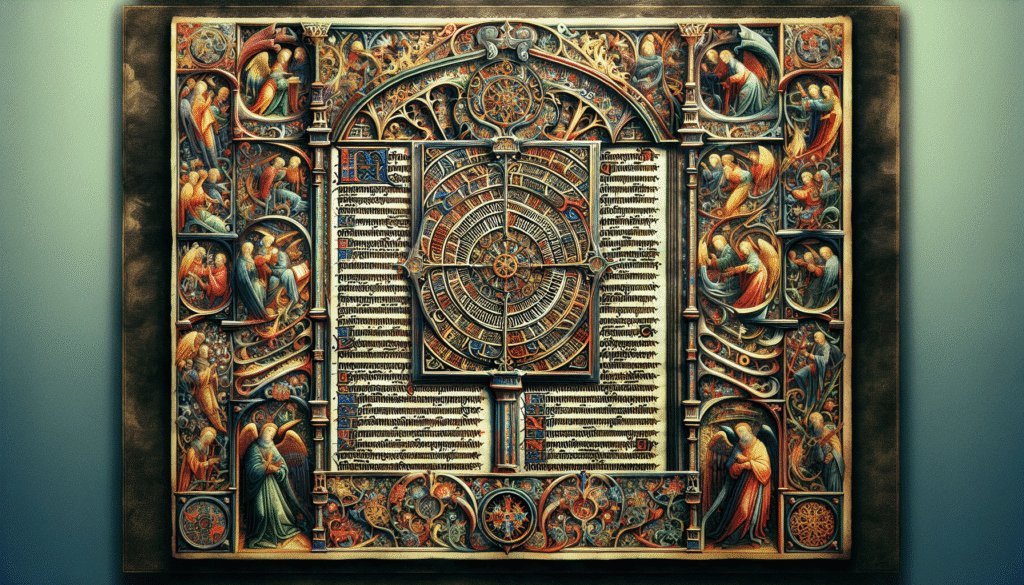Have you ever wondered where the world’s most treasured original documents and artifacts are kept? It’s a question that might spark the curiosity of history enthusiasts, academics, and anyone fascinated by the preservation of our collective heritage. As someone deeply invested in historical studies, possessing a Ph.D. in History, I find the topic of archives not only intriguing but crucial in 2025. Archives play a pivotal role in preserving the authenticity of documents and providing a foundation for historical research and analysis. This topic holds tremendous relevance today as we strive to maintain the integrity and accessibility of original records amid a rapidly digitalizing world.
TL;DR
If you’re short on time, here’s the gist of it. The world houses numerous archives that safeguard invaluable originals, ranging from ancient manuscripts to modern cultural artefacts. Notable ones include the massive Vatican Apostolic Library, the indispensable U.S. National Archives, and the vast collections of the British Library. These institutions ensure that crucial pieces of history remain protected and accessible for future generations. Each archive boasts unique characteristics, from the diversity of collections to innovative preservation technologies.

Notable Archives Around the Globe
When it comes to world-class archives, several institutions stand out due to their comprehensive collections and historical significance. In these archives, you’ll find documents of immeasurable value, safeguarded by experts dedicated to preserving history’s raw materials.
The Vatican Apostolic Library: A Treasure Trove of Religious Texts
The Vatican Apostolic Library, established in 1475, is one of the oldest repositories of texts in the world. Home to texts such as the “Codex Vaticanus” and rare prints, it houses over 1.1 million printed books and more than 75,000 codices. You can explore works from classical antiquity to the modern day, encompassing theology, history, philosophy, and science.
- Highlights:
- Over 8,500 incunabula (books printed before 1501)
- Home to the “Codex Vaticanus,” one of the oldest extant copies of the Bible
- Hosts digitization projects, making manuscripts available online
Sources such as the Vatican Library website provide access to digital copies of select manuscripts, letting you browse remotely.
The U.S. National Archives: America’s Historical Vault
This archive is more than just a repository for American history enthusiasts; it safeguards key documents like the U.S. Constitution, the Bill of Rights, and the Declaration of Independence. Created in 1934, it holds billions of records, from photographs and microfilm to digital assets.
- Key Features:
- Houses the Charters of Freedom
- Offers comprehensive genealogical resources
- Provides online access through platforms like the National Archives Catalog
With dedicated exhibits and educational resources, the U.S. National Archives is pivotal for scholars and the public alike.
The British Library: A Haven of Knowledge
Boasting some of the most comprehensive collections in the world, The British Library holds over 170 million items. It contains treasures like the Magna Carta, Leonardo da Vinci’s notebooks, and the Lindisfarne Gospels.
- Features of Note:
- Over 13.2 million books in its catalog
- Holds a wide range of formats, including manuscripts and sound recordings
- Provides access to over 4 million online publications through its digital archives
The British Library frequently updates its digital collection, allowing users like you to access rare texts without traveling.
The Library of Congress: A Monument to American Innovation
Established in 1800, the Library of Congress is the largest library in the world, with millions of books, recordings, photographs, maps, and manuscripts. Special projects digitize collections for broader accessibility, making it an invaluable resource.
- Statistics and Services:
- Holds more than 170 million items
- Features the National Book Festival annually
- Provides the Chronicling America service for historic newspapers
You’ll find the Library of Congress at the forefront of preservation and access to information, both physically and digitally.
Russian State Library: Preserving Eastern Europe’s Heritage
The Russian State Library in Moscow, one of the largest in the world, holds over 275 kilometers of shelving with books, manuscripts, and periodicals of profound historical significance.
- Significant Highlights:
- Over 47 million items encompass global history and culture
- Houses the only complete Gutenberg Bible in Russia
- Substantial digital transformation initiatives
Its collections cover an array of subjects, from Russian literature to global scientific advancements.
Frequently Asked Questions (FAQs)
What measures do archives take to preserve original documents?
Many archives employ climate-controlled environments, advanced security systems, and regular conservation efforts to ensure the longevity of their collections.
How can I access historical documents if I can’t visit the archive in person?
Numerous archives have digitized parts of their collections, allowing remote access via online platforms, such as the British Library’s digital repository and the U.S. National Archives Catalog.
Why do archives limit public access to some documents?
Access restrictions are often implemented to protect delicate documents from damage and to safeguard sensitive information. Archives may offer digital copies or transcripts for public consumption.
How do archives decide what to add to their collections?
Acquisition decisions are guided by the relevancy, rarity, and condition of items, in line with an institution’s focus, such as national history or literary works.
Are there any modern technologies aiding in document preservation?
Yes, archives utilize technologies like 3D scanning, advanced digitization techniques, and artificial intelligence to enhance document preservation and accessibility.

People Also Ask
What is the importance of keeping original documents in archives?
Original documents serve as authentic historical records, offering insights and evidence critical for research and education.
How are archives funded?
Archives are typically funded through a blend of governmental support, grants, and donations from public or private entities.
Which are the most famous archives worldwide?
Renowned archives include the Vatican Apostolic Library, U.S. National Archives, British Library, and Library of Congress.
Can anyone access archives?
Accessibility varies, but many archives offer public viewing sessions, while others require appointments or researcher accreditation.
What distinguishes an archive from a library?
Archives focus on preserving original documents and records, while libraries primarily provide access to books and media for borrowing or reference.
Takeaway
Exploring the world’s top archives reveals a fascinating commitment to preserving human history through sophisticated means. Whether accessing documents in person or online, these institutions ensure that the puzzle pieces of history remain within our reach for current appreciation and future exploration. With ever-improving technology, the realm of archives promises continued growth in accessibility and preservation for generations to come.



